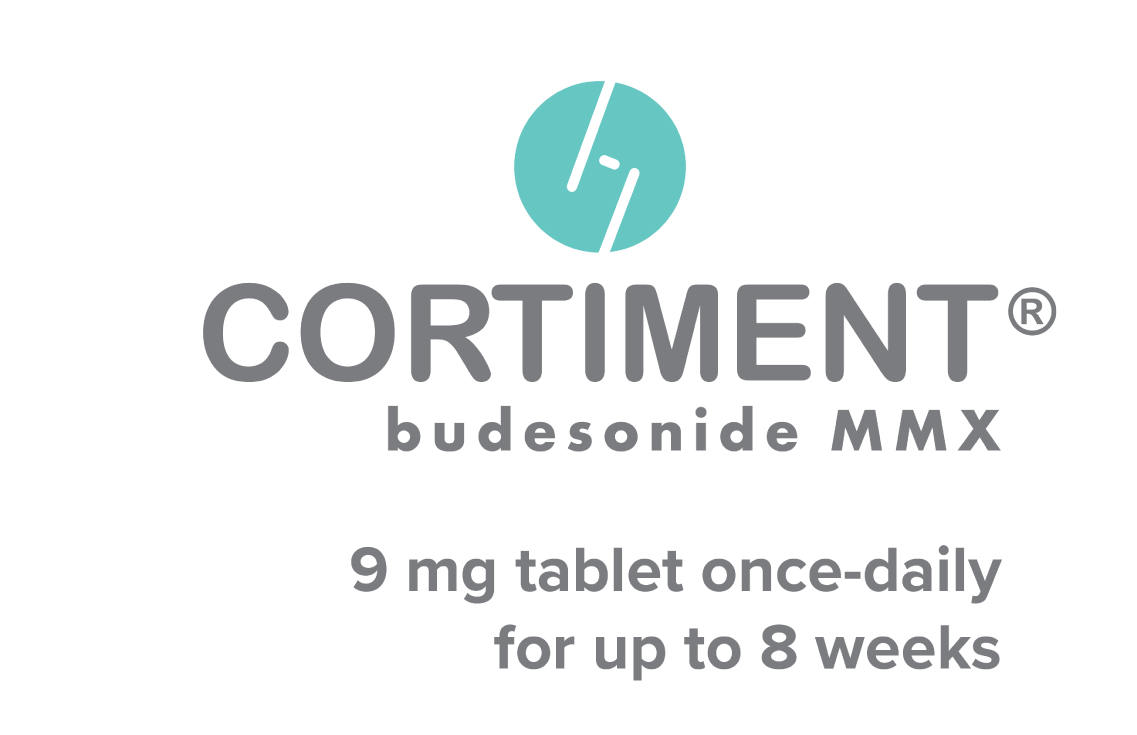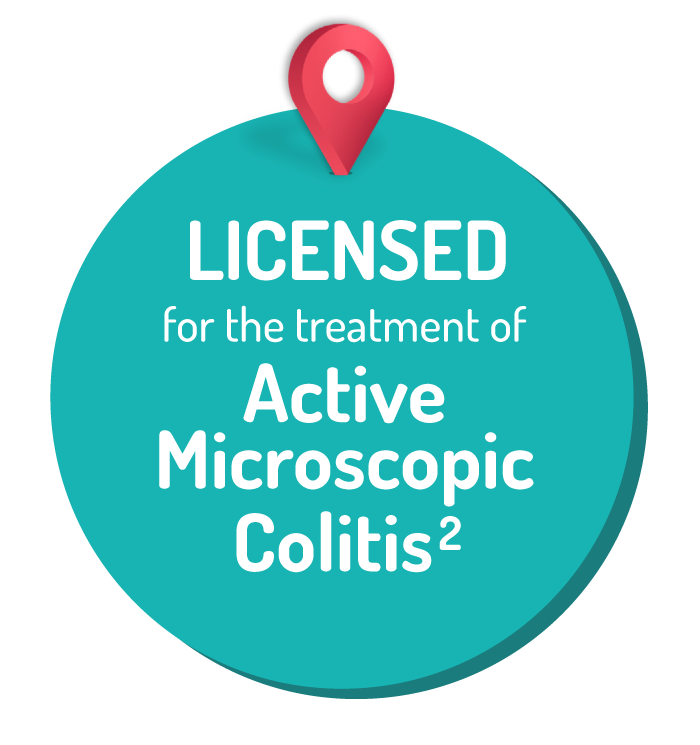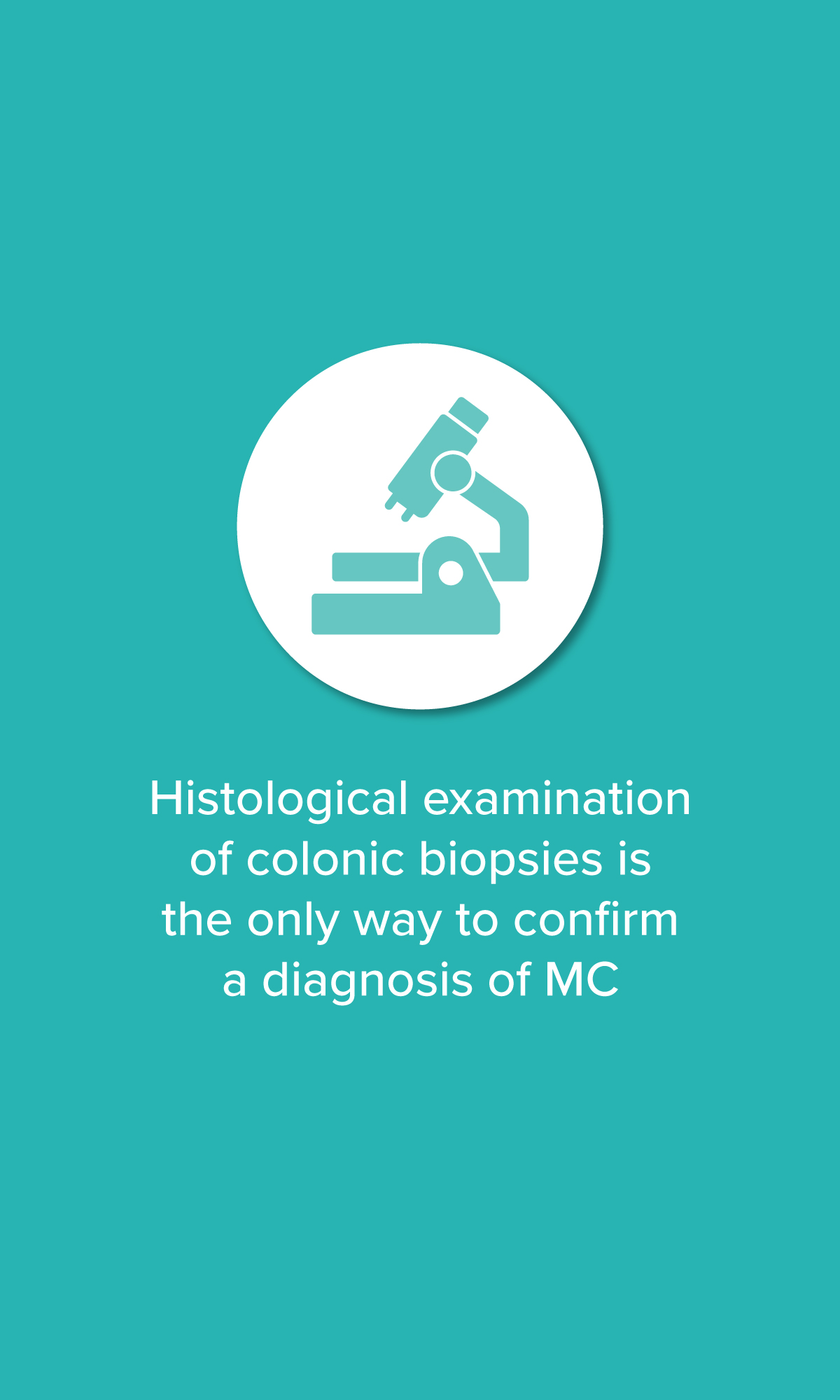


Adverse Event reporting information can be found in footer
Request a Meeting

Approximately 33-50% of patients who present with Microscopic Colitis meet symptom criteria for irritable bowel syndrome (IBS), often resulting in misdiagnosis.4
However, in most cases, by taking a thorough clinical history and using a bowel diary for 1-2 weeks, it is possible to distinguish between IBS and Microscopic Colitis.4
| Clinical history variable | Irritable bowel syndrome | Microscopic Colitis |
|---|---|---|
| First occurrence of disease | Usually before 50 years of age | Usually after 50 years of age |
| Stool consistency | Soft-variable-hard | Watery/soft |
| Abdominal pain/discomfort | Obligatory | Variable |
| Nocturnal diarrhoea | Very unlikely | Possible |
| Feeling of complete bowel evacuation | Common | No |
| Weight loss | Rare | Common |
| Faecal incontinence | Rare | Common |
| Feeling of fullness/bloating | Common | Rare |
| Accompanying autoimmune disease | Rare | Common |
These recently published guidelines provide information on epidemiology and risk factors of microscopic colitis, as well as evidence-based statements and recommendations on diagnostic criteria and treatment options, including oral budesonide, bile acid binders, immunomodulators and biologics. Recommendations on the clinical management of microscopic colitis are provided based on evidence, expert opinion and best clinical practice1
Job Code: UK-COR-2200001 - Date of preparation: January 2022